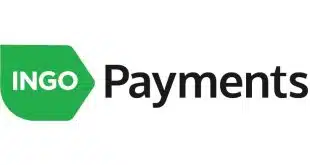In a major case whose effects could ripple widely across the payments industry, Block Inc. has sued Visa Inc. and Mastercard Inc., alleging the global networks worked together to fix interchange fees paid by Block’s Square operation. Square, which processes card transactions for millions of mostly small sellers, pays interchange and other card-acceptance fees on behalf of its merchants.
The suit by San Francisco-based Block, filed Friday, comes as the latest challenge—and one of the most substantial—to the networks’ interchange regime. “Visa and Mastercard have each fixed the Interchange Fees and other fees they charge in connection with the use of credit or debit cards at artificially high levels,” Block’s suit asserts. “Defendants have also engaged in anticompetitive practices that effectively require Square to pay these fixed and inflated fees.”
Square processed $46.2 billion in payment volume for its merchants in the first quarter, up 17% from the year-ago quarter, according to numbers it released earlier this year. In these arrangements, Square is the merchant of record and is responsible for interchange and other fees levied by acquirers and the networks.

A spokesman for Mastercard declined to comment on the suit, adding the company had not yet seen Block’s filing. Visa did not immediately respond to a request for comment.
Organizations that have long battled the card networks over the costs of card acceptance welcomed Block’s action. “Swipe fees are far too high and clearly drive up prices for consumers because they’re too much for retailers to absorb, especially small businesses. The way they are set by Visa and Mastercard and then uniformly charged by all banks that issue cards under their brands is clearly a violation of antitrust law,” says Doug Kantor, general counsel for the National Association of Convenience Stores, in an email message. Kantor is also an executive committee member of the Merchants Payments Coalition, a group that lobbies on behalf of merchants on payments costs.
Interchange-fee revenue is collected by card issuers, but Block’s suit also poses a challenge to another charge—the fixed acquirer network fee, or FANF—that the networks pocket. The FANF, introduced in 2012, aims to encourage more volume by charging less on a per-transaction basis as volume climbs. The fixed fee, however, increases as volume rises into a higher tier.




